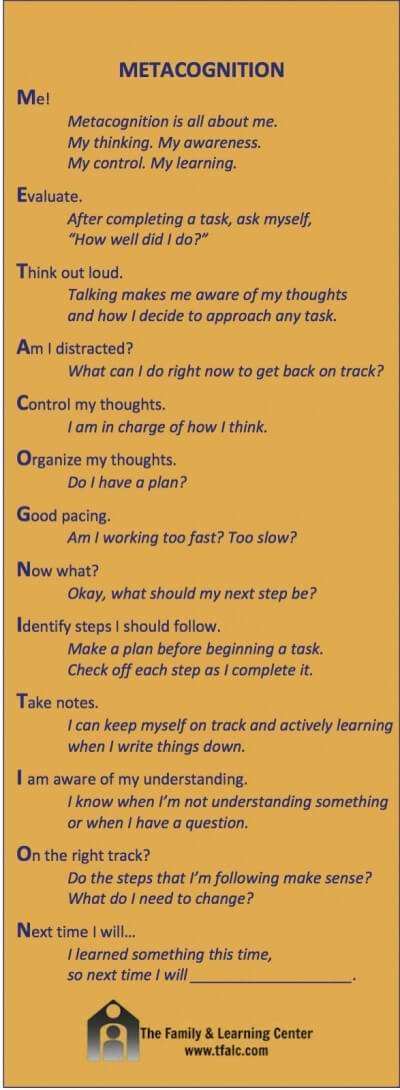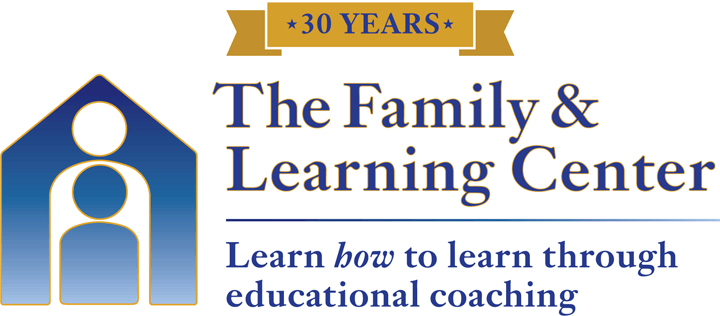Meta-what? Metacognition.
Sounds fancy, doesn’t it?
If you’re wondering what this word means, trust me you’re not alone. Metacognition is a term we use when coaching students. Even the younger ones.
When introducing this concept to students, there are three stages. First, we help our students break up the word and examine each piece. Next, we help students understand what metacognition means. And finally, we guide students to apply the concept to their learning.
Examine
Let’s start by breaking the word into two chunks. First, meta. Meta literally means “after, beyond, or about.”
Second, cognition. This part usually makes a little more sense because most students have at least heard of “cognition.” (Meta? Not so much.) Cognition in simplest terms is “thinking.”
Offering the initial definitions of the word parts to a student usually results in a wide-eyed, “I still have no idea what that means” look.
So we dive a little deeper.
Understand
Based on the two word parts, metacognition means “about thinking.” But in terms of knowledge and learning, we talk to our students about thinking on a new level. A higher level. A metacognitive level.
Metacognition is “thinking about thinking.” It is the awareness and control of what you are thinking about.
Try it out. What are you thinking about right now? Are you processing what you’re reading? Or are you thinking about what you’re going to have at your next meal? How aware are you of your thoughts?
That type of thinking that’s going on in your head right now – that is metacognition.
Apply
Metacognition, thinking about thinking, takes self-awareness. And if you’re aware of your thought processes, it can help you learn.
How often do you really think about your learning? When you were sitting in classrooms, were you ever aware of the thoughts going through your head while your teacher was lecturing? If you had been more aware, how would that awareness affected your learning?
Thinking about thinking helps our students learn. The awareness doesn’t happen right away, but over time metacognition has a positive impact on learning and understanding.
To help students apply the concepts related to regulating their thought processes, we use the visual below. Take a look and think about how you might use metacognition in your own daily life.


[…] Metacognition, or self-reflection, is something that successful people do. From artists, athletes, to entrepreneurs, those that are successful get there through failing at one point or another. Everyone experiences failure, but how you react to it determines whether you develop character or not. It helps in learning about yourself and making the adjustments to succeed. In essence, failure is there to tell you how to be successful, but only if you are willing to listen. […]